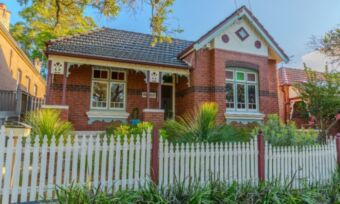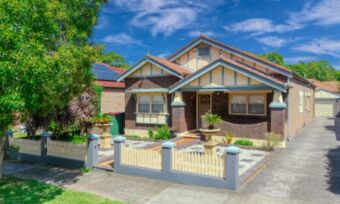Property prices in Australia: What a house might cost in 2062

If house prices continue appreciating at the same rate as they have over the past 40 years, how much will a property cost in 2062? We look at the numbers. Plus, Effie Zahos runs through the pros and cons of using a Home Guarantee Scheme to get on the property ladder.
What goes up but doesn’t come down? Your age … and property prices. Now, before you kindly remind me of all the property downturns (and there have been plenty) property prices, in general and over the long term, have trended upwards. In a way, you could say that over the long term the law of gravity just doesn’t apply to property prices.
I recently did some analysis for a Today segment about property prices 40 years ago. It’s hard to believe that in 1982 you could have picked up a house for as little as $84,841, according to CoreLogic data. In today’s dollars, this equates to around $316,000.
Given that average weekly earnings for all employees were $290.40 in 1982 (equivalent to around $1,080 today) it means that property cost around 300 times the average weekly earnings. Not cheap.
Things aren’t any better now. According to CoreLogic, the national median house price was sitting at $822,019 as at June 2022. This is about 618 times today’s average weekly earnings of $1,328.90.
Now for the kicker. If (and it’s a big if) house prices appreciated at the same rate over the next 40 years, CoreLogic estimates the median house price would be $7,964,488 in 2062. Sorry to say this, but if you’re a new parent there’s probably very little chance your offspring will ever be able to afford to buy a home.
While, as CoreLogic’s Tim Lawless pointed out, it’s highly unlikely that prices would rise by a similar amount, I get the angst of wanting to jump in to buy a home sooner rather than later. This is why the revamped Home Guarantee Scheme may be appealing.
Home Guarantee Scheme
As well as increasing the property price caps, the Albanese government is offering 35,000 spots from 1 July 2022 to 30 June 2023 under the First Home Guarantee. This lets eligible first home buyers jump into the market with as little as 5% deposit and no need for Lenders Mortgage Insurance (LMI).
Then there’s the Family Home Guarantee which allows single parents with dependents to buy a property with as little as 2% deposit without paying LMI. There are 5,000 spots available each financial year until June 2025.
The question is, though, with rates rising and property prices falling is it the right time to be jumping into the property market using one of these schemes? I’m a big believer that if you go in with your eyes wide open then the choice should be yours. It’s important to truly understand the pros and cons of buying a home under these schemes.
Pros of the Home Guarantee Scheme
- You don’t pay LMI
- You buy a home sooner and get off the rent treadmill
- You’re in the market so you can start building wealth
Cons of the Home Guarantee Scheme
- You’re borrowing more
- There are limited lenders so you may not get the cheapest rate
- There is a risk you’ll end up with negative equity
- If a mortgagee sale is needed the lender can still seek the shortfall from you
The risk of negative equity is very real but is only a problem if you’re forced to sell. An educated, informed decision about what’s right for you is the best approach.
Cover image source: Khakimullin Aleksandr/Shutterstock.com
This article was reviewed by our Editorial Campaigns Manager Maria Bekiaris before it was updated, as part of our fact-checking process.
The comparison rate for all home loans and loans secured against real property are based on secured credit of $150,000 and a term of 25 years.
^WARNING: This comparison rate is true only for the examples given and may not include all fees and charges. Different terms, fees or other loan amounts might result in a different comparison rate.
 Owner occupied
Owner occupied
 50% min deposit
50% min deposit
 Redraw facility
Redraw facility
Try our Home Loans comparison tool to instantly compare Canstar expert rated options.





